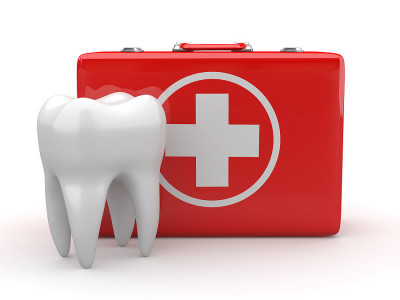Last Updated on March 11, 2024 by admin
Dental emergencies are untimely. No matter how strong is your oral hygiene routine or how healthy your gums are, problems can still strike without prior notice.
There are multiple contributors ranging from genetics to natural and accidental causes that can prompt dental emergencies at any moment. However, compared to other medical crises, they are comparatively manageable.
It is the pain and discomfort, combined with the mental trauma which can exacerbate the whole situation.
If the need for Los Angeles orthodontics surgical treatment has arisen unexpectedly, or if you want to consider early preparation to better deal with such disasters, this article has compiled a list of some of the best ways to handle the situation.
Here’s what you should do as soon as a dental emergency strikes:
1. Know your dental emergency first.
The sooner you can address a problem, the faster you can respond to it and find a resolution. Most patients, including their beloved, begin running here and there.
Without figuring out the root cause, a panicky environment is formed, which ends up adding more trouble to an already ruined situation. As a result, it is important to determine whether the pain in the gums or throughout the teeth is a problem in and of itself. A possible supporting nerve to a tooth might have shaken up the whole scene for you.
2. Stay Calm, and Divert Your Mind
It is necessary for patients to stay calm. Whatever Los Angeles Invisalign adult treatment you choose for the underlying condition, enjoyable activities must be prioritized.
Any stress can lead to fluctuations in the blood, which can intensify the bleeding during dental emergencies. Headache and body pain during dental emergencies are commonly triggered as the patient gets panicky about his situation.
For the best practice, take a deep breath and divert your mind from the emergency. But make sure relatives are cautious about the scene. If you believe you may need to drive your child, a family member, or a friend to the dentist at any time, relax but act quickly.
3. First aid may be beneficial.
Painkillers can be a great idea. Until a patient approaches a surgeon or dentist for their underlying dental condition, some relief can be provided with this first-aid medication.
At the same time, if the dental emergency has been driven by an injury or accident resulting in blood oozing out of the mouth or from the tooth section, bring some ice!
A cold press might pause the bleeding while ensuring that the patient gets enough time to prevent their condition from turning bad or worse.
A cold press is also helpful in reducing pain or inflammation caused by an underlying dental problem.
4. Plan ahead of time
Los Angeles orthodontics and dentists know no bounds. But don’t be too hasty. You still have time because you have put off dental emergencies with gauze, bandages, antiseptic mouthwash, or a cold press.
Google the location of the nearest dental clinic. Dentistry is also split into different categories, like an endodontist, an orthodontist, a prosthodontist, a periodontist, an oral and maxillofacial surgeon, and so on.
Choose a dentistry specialty that fits the treatment and can respond pretty well to an emergency. But in case the patient is yelling in pain, it’s better to bring them to the nearest dentist.
They might give them some medication and thus make some good recommendations.
5. Avoid chewing anything.
Avoid chewing anything until the patient successfully reaches a doctor. Even if the pain has gone away after a painkiller or has faded by itself, make sure you maintain a considerable distance from eating.
Patients experience symptoms during dental emergencies, but the underlying cause of the problem is unknown. As a result, it is worthwhile to refrain from eating in order to prevent a nerve from bursting, teeth from breaking down, and inflammation from wreaking havoc.
Eating puts pressure on the jaw, teeth, and gums, and the pain can be intensified by a minor mistake. So make sure to take frequent breaks from chewing.
6. Spit it out and do not consume it.
Avoid ingesting as much as possible at all times. You should even spit out your saliva if the dental emergencies have been driven by an accidental injury. Broken teeth or foreign particles can readily enter inside in such cases, which later on can trigger abdomen issues.
You can also avoid having painkillers; instead, you can use a cold press to manage the whole situation. Use an antiseptic mouthwash, or rinse your mouth with clean water.
Final Thoughts
Once you’ve resolved the issue, begin managing the situation and head to Los Angeles orthodontics for emergency treatment. In the end, you can’t replace emergencies, but you can manage them to lessen some unexpected climaxes. So, follow the advice in the article and make some good moves. Bear in mind that, whether you are a patient or lending a helping hand to some, taking calm but timely action makes smart sense.

